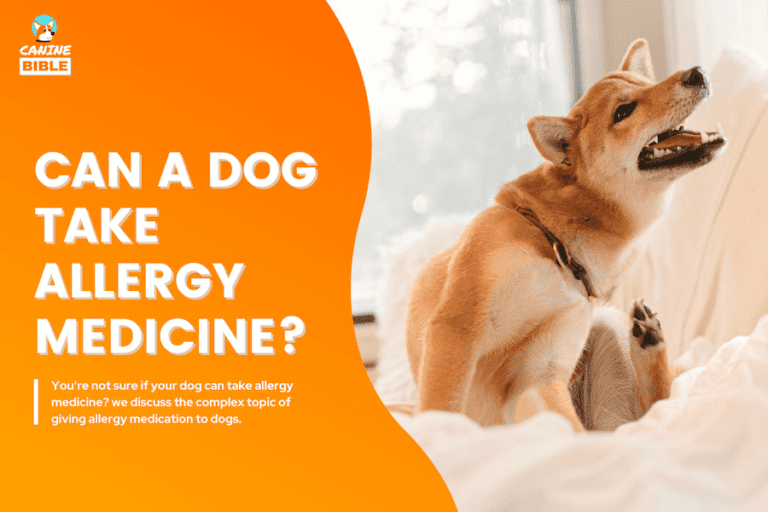Natural Home Remedies For Dogs With Allergies (According to Vets)
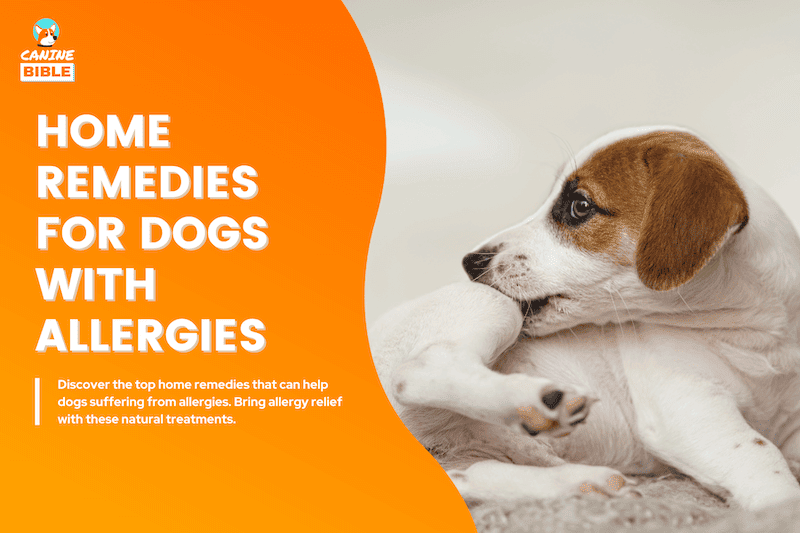
Canine Bible is reader-supported. We receive affiliate commissions via some of our links. This doesn’t affect rankings. Learn more.
Natural home remedies for managing dog allergies can encompass a variety of approaches, including herbal supplements, specialized diets, and natural supplementation. While certain home remedies have shown promise in preliminary research for reducing dog allergy symptoms, the scientific evidence supporting many natural treatments is still evolving.
When your beloved dog is affected by allergies, it’s natural to seek out every possible avenue for relief. However, it’s crucial to approach these remedies with caution. It’s also vital to recognize that while natural remedies can support allergies, they are not a substitute for conventional medical treatment in emergencies, such as anaphylaxis, a severe and potentially life-threatening allergic reaction.
This article will explore over 15 natural dog allergy remedies, examining available research, usage methods, and potential precautions. By providing a balanced view of these alternatives, we aim to help you make informed decisions in managing your furry friend’s allergies, ensuring their comfort and well-being. Let’s get started!

Home Remedies For Dogs With Allergies — At A Glance
Why you should trust us: Our writers, editors and in-house veterinarians spend hours analyzing and reviewing products and services to help find what’s best for you. Read the product review methodology and editorial mission to find out how we test, analyze, and rate.
What Are The Best Home Remedies For Dogs With Allergies?
Check these easy home remedies to help ease your dog’s allergy symptoms.
Whether your dog has skin allergies, flea allergies, or itching, these home remedies can give your dog some natural relief!
Apple Cider Vinegar For Dog Allergies
About: Apple cider vinegar (ACV) is a type of vinegar made from fermented apple juice. It has been used for centuries in both cooking and medicine. Its properties include being antimicrobial and an astringent, which may help treat skin conditions such as eczema, according to the National Eczema Association.[1]
How It Works (Mechanism of Action): The acetic acid in apple cider vinegar can help restore the skin’s natural acidity, which can be beneficial since a dog’s skin is naturally more acidic. Research shows that applying topical acids, regardless of their source materials, inhibits the development of skin lesions such as atopic dermatitis lesions by maintaining skin surface pH and skin barrier function.[2] By restoring or maintaining this acidity, ACV helps to:
How to Use It: Combine 50% apple cider vinegar and 50% water in a spray bottle —or even more diluted for sensitive dogs. It can be gently applied to a dog’s itchy skin using a spray bottle or a soft cloth. If your dog’s paws are irritated or covered in pollen and other substances, soak your dog’s paws in apple cider vinegar and water solution for up to five minutes. It can also be used to clean surfaces your dog regularly comes into contact with, reducing the number of environmental allergens.
Precautions: Before fully applying ACV, conducting a patch test is crucial to ensure no adverse reaction on your dog’s skin. Also, avoid sensitive areas such as the eyes and open sores due to the stinging sensation it may cause.
Aloe Vera For Dog Allergies
About: Aloe vera is a succulent plant known for its thick, fleshy leaves, which contain a gel-like substance. This plant has been used for centuries for its medicinal properties, primarily for skin care and wound healing.
How It Works (Mechanism of Action): Aloe vera has moisturizing, anti-inflammatory, antibacterial, and antioxidant properties against dogs’ staphylococcal pyoderma (dermatitis).[3] The high moisture content of the gel provides essential hydration to dry, irritated skin, which is a common symptom of allergic reactions in dogs. Additionally, aloe vera contains compounds like bradykinase, an enzyme that reduces inflammation and swelling, making it highly effective for treating inflamed or swollen skin areas. Moreover, aloe vera is known for promoting skin healing; it stimulates collagen production and aids in the regeneration of new skin cells, speeding up the healing process of damaged skin.[4]
How to Use It: Apply the pure aloe vera gel directly to the affected areas of your dog’s skin. It can be used as a spot treatment for hot spots or very irritated areas, providing a cooling sensation and relief. After a bath, you can apply aloe vera gel to help soothe the skin.
Precautions: It’s important to ensure that the aloe vera product used is 100% pure and free from additives like colors, fragrances, or alcohol, which could potentially worsen skin irritation.
Almond Oil For Dog Allergies
About: Almond oil, derived from the kernels of almonds, is a mild, hypoallergenic oil often used in skincare products for its nourishing properties. Almond oil is a popular choice for natural skin care in humans and pets.
How It Works (Mechanism of Action): Almond oil is an excellent emollient, which helps moisturize and soften the skin. Being rich in vitamin E, almond oil not only moisturizes but also helps heal damaged skin and improve skin resilience against irritation. Almond oil has natural anti-inflammatory properties, which can help reduce swelling and redness associated with allergic reactions. Although there are limited studies in dogs, one study found that almond oil relieved symptoms like burning, stinging, redness, and itchy skin in people.[5]
How to Use It: Gently rub a small amount of almond oil into the affected areas of your dog’s skin. Almond oil can be applied lightly over your dog’s coat to improve its shine and health.
Precautions: Always conduct a patch test before applying almond oil extensively, as some dogs might be allergic to nuts or nut-based products.
Baking Soda For Dog Allergies
About: Baking soda is a white crystalline powder widely used in baking, cleaning, and deodorizing.
How It Works (Mechanism of Action): Due to its mild alkaline nature and gentle properties, it’s also commonly used as a home remedy for various minor irritations and discomforts, including those in pets. The National Eczema Association recommends treating Eczema to help relieve itching.
How to Use It: You can use it as a paste by mixing one tablespoon of baking soda with a small amount of water to form a thick paste. Apply this paste directly to itchy or sore areas on your dog’s skin, let it dry, then rinse off. Adding baking soda to a bath can be beneficial for more widespread skin irritation. It can also be used as a spray.
Precautions: While baking soda is generally safe for dogs in external applications, it’s important to ensure your dog doesn’t lick or eat it. Baking soda can be very dangerous for dogs. You should use a cone to prevent your dog from licking or eating the paste.
Coconut Oil For Dog Allergies
About: Coconut oil is a natural oil extracted from the meat of mature coconuts. It has gained popularity in both human and pet wellness circles due to its versatile health benefits.
How It Works (Mechanism of Action): Regular coconut oil application can enhance the skin’s barrier function, making it more resilient against allergens.[6] Coconut oil’s high-fat content makes it an excellent moisturizer, helping to soothe and hydrate dry, itchy skin, which is common in allergic reactions.[7]
How to Use It: Apply a small amount of coconut oil directly onto your dog’s skin, particularly in areas that are dry, itchy, or showing signs of allergies. Gently massage it into the skin and coat.
Precautions: While coconut oil is generally safe for dogs, it’s important to start with small amounts to ensure your dog doesn’t have an adverse reaction. Always choose virgin, unrefined coconut oil, as it retains more of the beneficial properties compared to refined versions.
About: Herbal tea soaks involve using teas made from various herbs known for their skin-soothing properties and anti-inflammatory properties that can relieve allergy symptoms in dogs. Common choices include chamomile, calendula, green tea, and lavender, each offering unique benefits for skin health.
How It Works (Mechanism of Action): The benefits will vary depending on your chosen herbal tea. For instance, herbs like chamomile contain anti-inflammatory compounds and are known for their calming effects on the skin. Herbs like lavender are known for their soothing and mildly antiseptic properties while calendula is rich in flavonoids, which promote skin healing and reduce inflammation.
How to Use It: You can either soak a clean cloth in the tea and apply it to the affected areas or add several tea bags to a bath and let your dog soak in it for at least five minutes for overall skin relief. For smaller itchy patches, steep one or two tea bags and pour cooled tea on the affected area. Let it drip dry.
Precautions: Before using any new herb, ensure your dog isn’t allergic to it. Always perform a patch test first and observe for any adverse reactions. The tea should be at a comfortable temperature to prevent any risk of burns.
About: Colostrum, the first form of milk produced by mammals immediately after birth, is crucial for the development of the newborn’s immune system and digestive health. In adult dogs, it serves more than just an immune-boosting function; it’s also helpful in alleviating allergy symptoms.[8] It’s effective in managing symptoms related to the immune system’s response to common allergens.
How It Works (Mechanism of Action): The key ingredient in colostrum that aids in allergy relief is Proline-Rich Polypeptide (PRP). Research has identified PRP is responsible for eliminating or improving the symptoms of allergies.[9] It works by inhibiting immune cells that intensify allergic reactions and helps create suppressor T-cells that can switch off the immune response. Additionally, PRP has anti-inflammatory properties and can reduce histamine levels, which are often the culprits behind allergic reactions. Bovine colostrum is beneficial as it provides dogs with antibodies to common allergens. Cows naturally develop antibodies to various allergens, such as pollen and fleas, which they then transfer to their calves, protecting them from these allergens.[10] By giving your dog colostrum, these antibodies can help teach their immune system to recognize these substances as non-threatening, offering relief from allergies.
How to Use It: The general guideline is 1/8 teaspoon of powdered colostrum per 25 pounds of body weight, given twice daily. Colostrum can be administered either in powdered or capsule form. It’s most effective on an empty stomach but can be mixed with a small amount of yogurt or broth if necessary.
Precautions: It’s important to monitor your dog for any adverse reactions, especially if they are sensitive to dairy products.
Epsom Salt Baths For Dog Allergies
About: Epsom salt, chemically known as magnesium sulfate, is a naturally occurring mineral compound. Unlike regular table salt, Epsom salt has a unique chemical structure that imparts distinct healing properties.
How It Works (Mechanism of Action): A study found that magnesium salts can be effective for dry skin and for reducing inflammation.[11] Magnesium is for allergy relief because magnesium is a bronchodilator and an antihistamine.
How to Use It: Dissolve Epsom salt in warm water in a bathtub and let your dog soak it for 10-15 minutes. The concentration of Epsom salt should be appropriate for the size of the bath and the size of your dog (typically a couple of cups for an average-sized bathtub). Depending on the severity of your dog’s allergies, Epsom salt baths can be given once or twice a week.
Precautions: Ensure your dog does not drink the Epsom salt water, as ingestion can lead to digestive upset. It’s also important to avoid Epsom salt baths if your dog has open wounds or raw skin, as it may irritate.
About: Plain yogurt is a fermented dairy product made by adding live bacteria to milk. For dogs, plain, unsweetened yogurt without added flavors or sweeteners is recommended.
How It Works (Mechanism of Action): The live cultures in yogurt are probiotics that help maintain a healthy balance of beneficial bacteria in the gut. This can improve digestion and boost the immune system. Healthy gut flora positively affects overall dog health, including skin health. By improving gut health, yogurt can indirectly benefit skin conditions associated with allergies.
How to Use It: Add a small amount of plain, unsweetened yogurt to your dog’s food. The quantity depends on the size of your dog but generally starts with a teaspoon for small dogs and scales up for larger breeds.
Precautions: Not all dogs tolerate dairy well, so starting with a small amount is essential to see how your dog reacts. If your dog reacts badly after trying the yogurt, look for another solution.
About: Omega-3 fatty acids are essential fats not naturally produced by the body and must be obtained through diet or supplementation. They are known for their anti-inflammatory properties and are found in high concentrations in fish, flaxseed, and certain plant oils. The key ingredients in omega-3 supplements for dogs usually include Eicosapentaenoic Acid (EPA), Docosahexaenoic Acid (DHA), and Alpha-linolenic Acid (ALA).
How It Works (Mechanism of Action): Omega-3 fatty acids, particularly EPA, are known to decrease the production of substances that cause inflammation. The research found that administering omega-3 fatty acids (EPA and DHA) is beneficial in managing canine allergic dermatitis and canine haircoat disorder.[12] Additionally, a separate study revealed that dogs given a diet supplemented with EPA and DHA from marine oil significantly improved symptoms like itching, hair loss, and overall coat quality over time.[13] This suggests that omega-3 fatty acids are an effective anti-inflammatory treatment for canine allergic skin diseases and help improve the skin’s barrier function, retaining moisture and protecting against environmental allergens. Regular intake of omega-3s contributes to a healthier, shinier coat, reducing the occurrence of dandruff and dry skin.
How to Use It: Omega-3 supplements for dogs come in various forms, including capsules and liquid oils, and they are used as an ingredient in some dog foods. The correct dosage depends on the dog’s size and specific needs.
Precautions: Choosing a high-quality omega-3 supplement free from contaminants is essential. The correct dosage is crucial to avoid side effects, such as stomach upset or fishy odor.
About: Oatmeal is made from the oat plant, Avena Sativa. Oats are considered one of the healthiest grains. An oatmeal bath involves using colloidal oatmeal, which is finely ground oatmeal that easily dissolves in water.
How It Works (Mechanism of Action): Oatmeal’s natural oils and starches have moisturizing, anti-inflammatory, and soothing properties. Colloidal oatmeal can have beneficial effects in managing inflammatory skin diseases, such as irritant eczema.[14] Research shows that oatmeal can also soothe and protect the skin, mainly when dissolved in bath water.[15] Furthermore, colloidal oatmeal forms a protective barrier on the skin, helping to lock in moisture and protect the skin from external irritants.[16]
How to Use It: Fill a bathtub with lukewarm water and add a cup of colloidal oatmeal. Stir the water to ensure the oatmeal is evenly dispersed, forming a milky, soothing bath. Let your dog soak in the oatmeal bath for 10-15 minutes. After the bath, rinse your dog with clean, lukewarm water to remove oatmeal residue from their coat. You can also spread an oatmeal paste on the affected skin.
Precautions: While oatmeal baths are generally safe, preventing your dog from ingesting the bathwater is important, as consuming large amounts of oatmeal can upset their stomach. Ensure the water temperature is comfortable, and keep the oatmeal mixture out of your dog’s eyes and ears.
AVOID oat bath if your dog is itching due to a yeast infection. Oat is a source of carbohydrates, which will only make yeast thrive.
About: Quercetin is a naturally occurring flavonoid in many fruits, vegetables, and plants. It is often called “nature’s Benadryl” due to its antihistamine and anti-inflammatory properties. This makes it a popular natural supplement for treating allergies in dogs.
How It Works (Mechanism of Action): The active ingredient in quercetin supplements is quercetin itself, which is extracted from sources like apples, berries, and onions.[17] It may be combined with other natural ingredients like bromelain (an enzyme from pineapples) to enhance its absorption and effectiveness. Quercetin helps stabilize the cells that release histamine in the body (mast cells), which in turn helps reduce allergic reactions and symptoms.
How to Use It: Quercetin supplements for dogs are available in capsules or chewable tablets. The dosage depends on the size of the dog and the severity of their allergies.
Precautions: While quercetin is generally safe for dogs, starting with a low dose and gradually increasing to the recommended amount is essential to ensure your dog tolerates it well.
Probiotics are live microorganisms, often referred to as “good” or “beneficial” bacteria, that promote a healthy balance of gut flora. By promoting a healthy gut environment, probiotics can enhance the immune system’s ability to respond to allergens. Some probiotics can help reduce gastrointestinal inflammation, benefiting dogs with food allergies or sensitivities. They can strengthen the gut barrier, preventing harmful substances and allergens from entering the bloodstream. Probiotics for dog allergies can be found in various forms, including supplements, certain dog foods, and some natural foods.
About: Nettles, also known as stinging nettles or Urtica dioica, is a plant with a long history of medicinal use. Nettles can be incredibly beneficial for health, particularly for allergy relief. They are often used in herbal medicine for their anti-inflammatory and antihistamine properties.[18]
How It Works (Mechanism of Action): Nettles contain histamines. These natural histamines in nettles can help build tolerance in the body. Nettles also contain quercetin, which boosts nettles’ anti-allergy effects.
How to Use It: Nettles can be given to dogs as supplements, such as capsules or tinctures. A nettle tea can be added to your dog’s food or water. Ensure it is cooled before serving.
Precautions: While nettles are generally safe, starting with a small dose is important to ensure your dog doesn’t have an adverse reaction. Fresh nettles should be handled and prepared carefully to avoid the stinging effect.
About: Medicinal mushrooms are a group of fungi known for their health-promoting properties.[19] However, certain mushrooms containing beta-glucans have immune-modulating properties. These include Reishi, Shiitake, Cordyceps, Maitake and Turkey Tail. They contain active compounds that can support immune health and help manage allergies. Some mushrooms like Reishi have anti-inflammatory and antihistamine effects.
How It Works (Mechanism of Action): Beta-glucans and polysaccharides in mushrooms help regulate the immune system, potentially reducing hypersensitivity to allergens. Animal and human clinical studies support beta-glucans’ importance in treating and preventing allergic diseases.[20]
How to Use It: Medicinal mushrooms for dogs are often available as supplements, such as powders or capsules. Some mushroom supplements can be mixed into your dog’s regular food.
Precautions: Not all mushrooms are safe for dogs; some can be toxic. It’s crucial to use only those varieties known to be safe and beneficial, ideally under the guidance of a veterinarian.
About: Thyme is a culinary herb known for its aromatic and medicinal properties. Research has shown that thyme contains natural bactericidal and fungicidal properties.[21] This makes it ideal for the treatment of inflammations associated with allergies.
How It Works (Mechanism of Action): The primary active components in thyme, Thymol and carvacrol, help fight against bacteria and fungi, which can benefit dogs with skin allergies prone to infections. Flavonoids, which have antioxidant and anti-inflammatory effects, are also present in thyme.
How to Use It: Thyme can be applied topically to the affected areas as a tincture, spray or infusion.
Precautions: While thyme is generally safe in small quantities, excessive consumption can lead to digestive upset. It’s important to use it in moderation and observe your dog for adverse reactions.
About: Witch hazel is a natural astringent derived from the bark and leaves of the Hamamelis virginiana plant.
How It Works (Mechanism of Action): The primary component in witch hazel is tannin, which gives it its astringent properties. It also contains small amounts of gallic acid, catechins, and other antioxidants. Witch hazel helps dry and tighten the skin, which can be beneficial for reducing inflammation and relieving itchy skin. t reduces skin inflammation and can calm irritation, relieving allergy symptoms.
How to Use It: Apply witch hazel directly to the affected areas of your dog’s skin using a cotton ball or soft cloth. Alternatively, you can get Wipes with Witch Hazel or Dilute witch hazel with water and use it as a gentle rinse or spray for larger areas of skin irritation.
Precautions: Ensure the witch hazel you use is alcohol-free, as alcohol can be irritating to a dog’s skin. It’s important to avoid using it near the eyes, ears, or on open wounds. Always start with a small amount to ensure your dog doesn’t have an adverse reaction, and avoid using it excessively.
Other Homemade Remedies For Dogs With Allergies to Consider
Home Remedies For Dog Allergies
According to our research, natural remedies are believed to be beneficial in alleviating certain allergy symptoms in dogs. However, it’s important to note that research into the effectiveness of these natural remedies for dog allergies is still ongoing. Before incorporating any of these treatments into your dog’s routine, it’s crucial to consult with your veterinarian. We also recommend performing an at-home dog allergy test to discover the culprit behind your dog’s allergies. Your vet and allergy test can provide valuable insight into your dog’s symptoms and health needs. Your vet can also guide you on how these natural treatments might interact with your dog’s existing allergy medications.
Like It? Subscribe & Share!
Sources
Canine Bible uses only high-quality sources, including peer-reviewed studies, to support the facts within our articles. Read our editorial process and product review methodology to learn more about how we fact-check, test products, and keep our content accurate, reliable, and trustworthy.
- Jones, K. (2018, December 13). Get the facts: Using apple cider vinegar. National Eczema Association.
- Lee, N. R., Lee, H.-J., Yoon, N. Y., Kim, D., Jung, M., & Choi, E. H. (2016). Application of Topical Acids Improves Atopic Dermatitis in Murine Model by Enhancement of Skin Barrier Functions Regardless of the Origin of Acids. Annals of Dermatology, 28(6), 690.
- Kamr, A., Arbaga, A., El-Bahrawy, A., Elsify, A., Khaled, H., & Hassan, H. (2020). The therapeutic efficacy of Aloe vera gel ointment on staphylococcal pyoderma in dogs.
- Hekmatpou, D., Mehrabi, F., Rahzani, K., & Aminiyan, A. (2019). The Effect of Aloe Vera Clinical Trials on Prevention and Healing of Skin Wound: A Systematic Review. Iranian Journal of Medical Sciences, 44(1), 1–9.
- Zeichner, J. A., Berson, D., & Donald, A. (2018). The Use of an Over-the-Counter Hand Cream With Sweet Almond Oil for the Treatment of Hand Dermatitis. Journal of Drugs in Dermatology: JDD, 17(1), 78–82.
- Vaughn, A. R., Clark, A. K., Sivamani, R. K., & Shi, V. Y. (2017). Natural Oils for Skin-Barrier Repair: Ancient Compounds Now Backed by Modern Science. American Journal of Clinical Dermatology, 19(1), 103–117.
- Verallo-Rowell, V. M., Katalbas, S. S., & Pangasinan, J. P. (2016). Natural (Mineral, Vegetable, Coconut, Essential) Oils and Contact Dermatitis. Current Allergy and Asthma Reports, 16(7).
- Satyaraj, E., Reynolds, A., Pelker, R., Labuda, J., Zhang, P., & Sun, P. (2013). Supplementation of diets with bovine colostrum influences immune function in dogs. British Journal of Nutrition, 110(12), 2216–2221.
- Keech, A. M. (2007). Peptide Immunotherapy: The Use of Bovine Colostrum Proline-Rich Polypeptides in Cytokine Modulation for the Alternative Relief of Allergic Symptoms. Journal of Allergy and Clinical Immunology, 119(1), S260.
- Beynen, A. C. (2020). Bovine colostrum for dogs.
- Proksch, E., Nissen, H.-P., Bremgartner, M., & Urquhart, C. (2005). Bathing in a magnesium-rich Dead Sea salt solution improves skin barrier function, enhances skin hydration, and reduces inflammation in atopic dry skin. International Journal of Dermatology, 44(2), 151–157.
- MAGALHÃES, T. R., LOURENÇO, A. L., GREGÓRIO, H., & QUEIROGA, F. L. (2021). Therapeutic Effect of EPA/DHA Supplementation in Neoplastic and Non-neoplastic Companion Animal Diseases: A Systematic Review. In Vivo, 35(3), 1419–1436.
- Kaur, H., Singla, A., Singh, S., Shilwant, S., & Kaur, R. (2020). Role of Omega-3 Fatty Acids in Canine Health
- Sobhan, M., Hojati, M., Vafaie, S.-Y., Ahmadimoghaddam, D., Mohammadi, Y., & Mehrpooya, M. (2020). The Efficacy of Colloidal Oatmeal Cream 1% as Add-on Therapy in the Management of Chronic Irritant Hand Eczema: A Double-Blind Study. Clinical, Cosmetic and Investigational Dermatology, 13, 241–251.
- Reynertson, K. A., Garay, M., Nebus, J., Chon, S., Kaur, S., Mahmood, K., Kizoulis, M., & Southall, M. D. (2015). Anti-inflammatory activities of colloidal oatmeal (Avena sativa) contribute to the effectiveness of oats in treatment of itch associated with dry, irritated skin. Journal of Drugs in Dermatology: JDD, 14(1), 43–48.
- Reynertson, K. A., Garay, M., Nebus, J., Chon, S., Kaur, S., Mahmood, K., & Southall, M. D. (2016). Colloidal Oatmeal (Avena Sativa) Improves Skin Barrier Through Multi-Therapy Activity.
- Beynen, A. C. (2020). Quercetin for Dogs.
- Riehemann, K., Behnke, B., & Schulze-Osthoff, K. (1999). Plant extracts from stinging nettle (Urtica dioica ), an antirheumatic remedy, inhibit the proinflammatory transcription factor NF-κB. FEBS Letters, 442(1), 89–94.
- Venturella, G., Ferraro, V., Cirlincione, F., & Gargano, M. L. (2021). Medicinal Mushrooms: Bioactive Compounds, Use, and Clinical Trials. International Journal of Molecular Sciences, 22(2), 634.
- Jesenak, M., Banovcin, P., Rennerova, Z., & Majtan, J. (2014). β-Glucans in the treatment and prevention of allergic diseases. Allergologia et Immunopathologia, 42(2), 149–156.
- Heggers, J. P., Cottingham, J., Gusman, J., Reagor, L., McCoy, L., Carino, E., Cox, R., Zhao, J. G., & Chiang, W. (2019). Antimicrobial Activity of Thyme Oil, Oregano Oil, Thymol, and Carvacrol Against Sensitive and Resistant Microbial Isolates from Dogs with Otitis Externa.
Canine Bible authorship represents the unified voice of our entire editorial team and our in-house veterinarians rather than a single author. Each article, blog post, and review published under the Canine Bible name undergoes a rigorous review process, involving all team members to guarantee accuracy and up-to-date in accordance with the latest veterinarian research. This collaborative effort is an integral part of our editorial process and aligns with our four pillars of content creation. This approach ensures our content is backed by expert knowledge and factual information, offering our readers reliable, actionable, and trustworthy content.























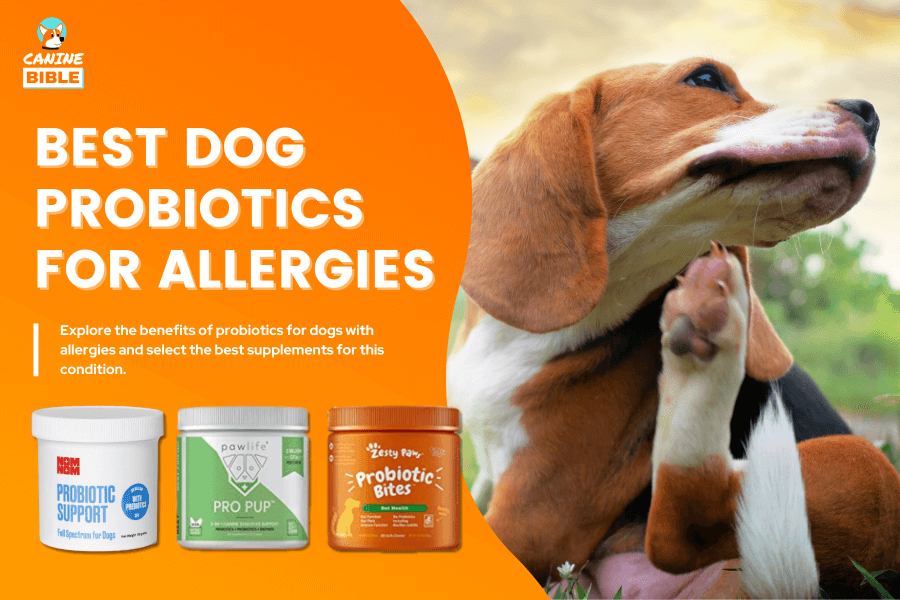







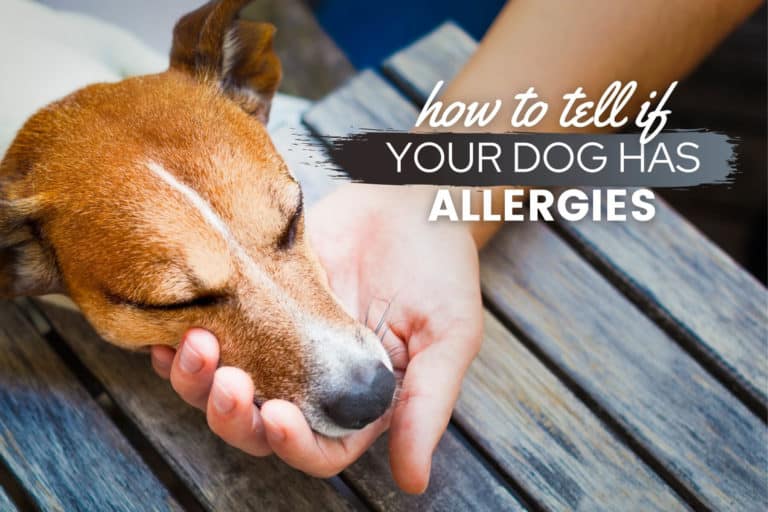
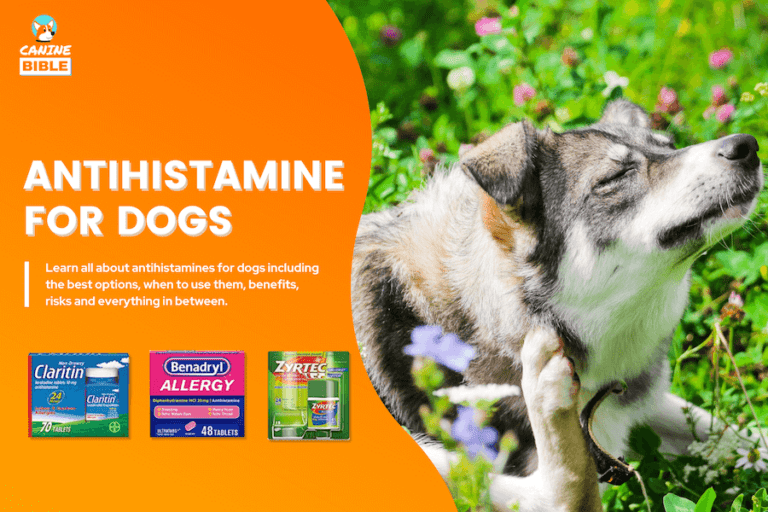
![Dog Allergy Testing Cost: How Much Will You Pay? [Update 2024]](https://www.caninebible.com/wp-content/uploads/2022/08/how-much-does-dog-allergy-testing-cost-768x512.jpeg)
